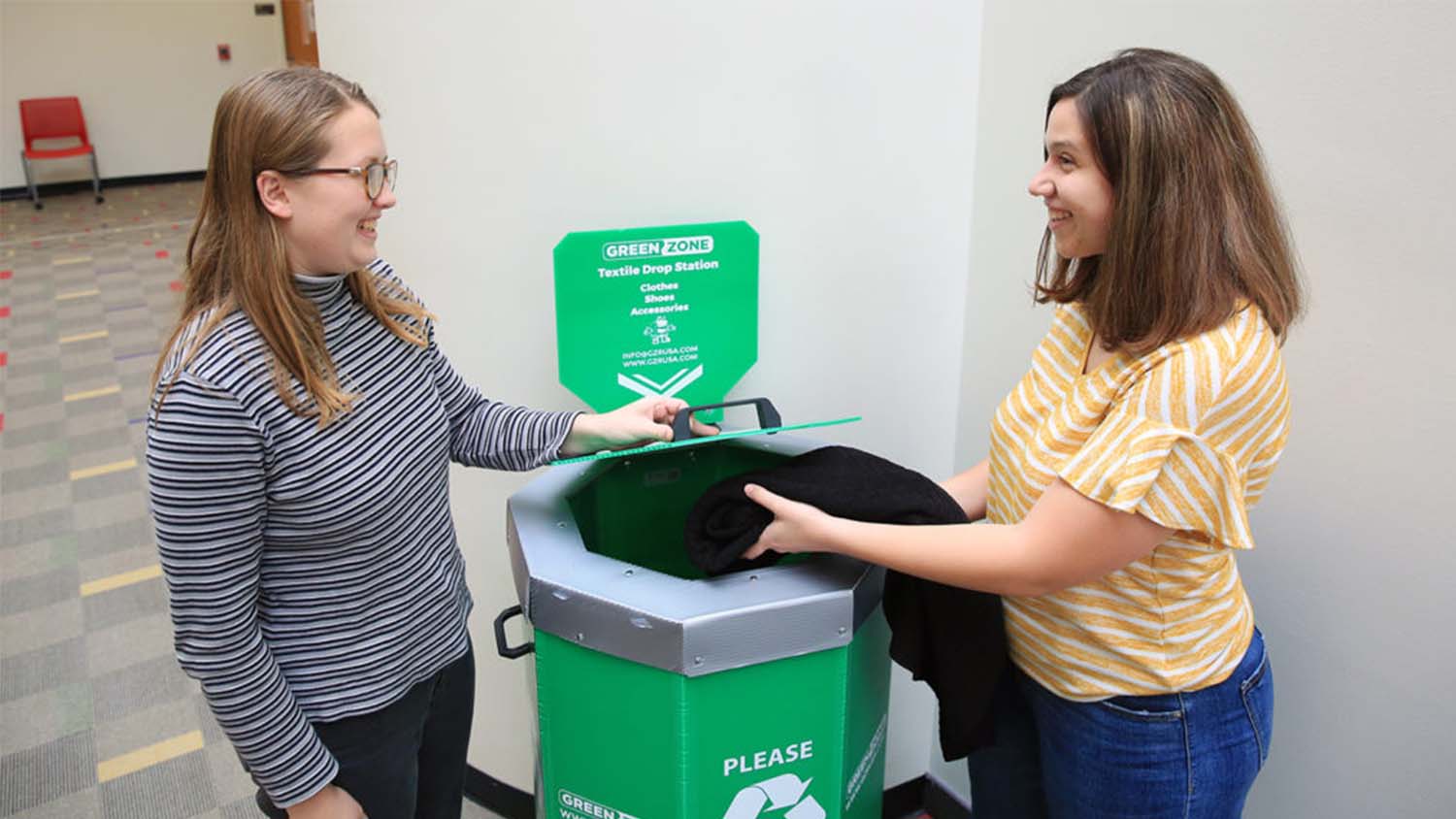Sustainability Committee Tackles Textile Waste with Green Zone Recycling Bins

Written by Michelle Kerstein, Fashion and Textile Management student
The Wilson College of Textiles Sustainability Committee has partnered with Green Zone, a textile reclamation operator, headquartered in Durham, North Carolina to reduce textile waste at the college and within the community.
Using strategically placed green bins on campus, students and faculty can drop off clothes, shoes and accessories – anything made from textiles! These items are collected and sorted by Green Zone at facilities across the United States where they are evaluated based on quality grade, type of product and current market demand. Items are separated into three grades: useable clothing, wiping cloth grades and fiber conversion grades. According to SMART, the Secondary Materials and Recycled Textiles Association, 45% are sold to secondhand markets, 30% are made into industrial cloths and 20% are recycled as fibers.
Addressing textile waste is an important step towards sustainability. In 2015, the Environmental Protection Agency reported that 16 million tons of textiles were generated. Of that number, only 15.3% was recycled, leaving 10 million tons in the landfill. By facilitating this initiative, the Wilson College of Textiles is leading the way towards a sustainable future.
Liz Ward, vice president of internal operations at Green Zone and an NC State alumna, was instrumental in this collaboration and has high hopes for the program.
“Partnering with NC State’s Wilson College of Textiles provides students with a free and easy way to pass along their undesired post consumer textile waste (PCTW) such as clothing, shoes and small household items for redistribution into the secondhand market. Hopefully, students will become interested in textile recycling to help drive research and funding for national recycling pipelines of reusable materials to local manufacturers,” she said.“The market for textile scraps is oversaturated and many free services now require payment to transport, store and shred scraps that may still be sent to landfills. My hopes for the program include increasing the number of containers on NC State’s campus along with fostering relationships between departments to work together on innovative sustainable technology for PCTW reuse in a variety of new closed loop applications.”
The implementation of the textile recycling program is part of a larger effort by the Sustainability Committee to make the Wilson College of Textiles greener. Dr. Karen Leonas, chair of the Sustainability Committee, believes that it will challenge others to think sustainably.
“It allows for students, staff and faculty to discard of both post-industrial (scraps from weaving, knitting, yarn production and the apparel product development labs) and post-consumer textiles in a sustainably responsible manner. We also hope this will raise the awareness of those in the Wilson College of Textiles and other at NC State regarding alternate ways to dispose of textile waste rather than sending it to the landfill,” she said.
The Sustainability Committee was created in 2017 to improve sustainability efforts on campus. The committee consists of both faculty and students who collaborate to establish lasting sustainability initiatives.
Want to recycle your items at the Wilson College of Textiles? Follow these tips:
- Donate clothes, shoes or household textiles!
- Remember items can be worn, torn or stained
- Make sure items are washed and dried
- Categories:


